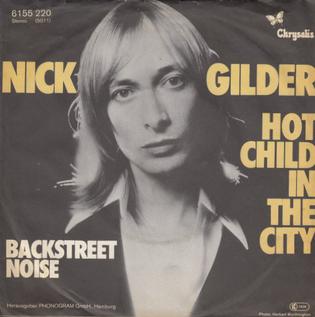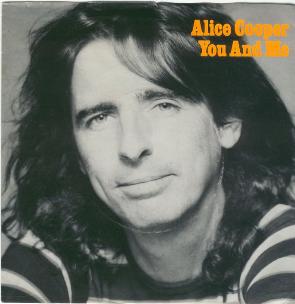
"You're All I Need to Get By" is a song recorded by the American R&B/soul duo Marvin Gaye and Tammi Terrell and released on Motown Records' Tamla label in 1968. It was the basis for the 1995 single "I'll Be There for You/You're All I Need to Get By" from Method Man and Mary J. Blige.

"One Tin Soldier" is a 1960s counterculture era anti-war song written by Dennis Lambert and Brian Potter. Canadian pop group The Original Caste first recorded it in 1969 for both the TA label and its parent Bell label.

"That Girl" is a song by American R&B singer and songwriter Stevie Wonder. It was the leading single from Wonder's album-era 1982 greatest-hits compilation, Stevie Wonder's Original Musiquarium I, as one of four newer songs from the collection. The song spent nine weeks at number one on the Billboard R&B singles chart, the longest time a Stevie Wonder single spent at the top spot. It also peaked at number four on the Billboard Hot 100 for three consecutive weeks from March 20 to April 3, 1982.

"Montego Bay" is a song co-written and performed by Bobby Bloom about the city in Jamaica of the same name. The song was a top ten hit for Bloom in the Fall of 1970 on both sides of the Atlantic. It reached No. 3 on the UK Singles Chart, No. 5 on the Canadian RPM 100 Singles Chart, No. 7 on the Australian Go-Set Singles Chart and No. 8 on the US Billboard Hot 100. The song was co-written and produced by Jeff Barry. In the master tape of the song, Bloom breaks into a chorus of "Oh, What a Beautiful Mornin'" at the end of the recording. The song features a whistler, as well as Jamaican instruments in a calypso style.

"Hot Child in the City" is a song by English-Canadian musician Nick Gilder. It was released in June 1978 as a single from the album City Nights. It went to No. 1 both in Canada and in the United States. It was not his first No. 1 single: as the lead singer of Sweeney Todd, he had hit No. 1 in Canada on June 26, 1976 with the single "Roxy Roller", which remained at the top for three weeks. He won 2 Juno Awards in Canada and a People's Choice Award in the US. According to The Billboard Book of Number 1 Hits, it held the record for taking the longest amount of weeks to reach No. 1 at the time, taking 21 weeks to reach the summit. The song became a platinum record.

"More Love" is a 1967 hit single recorded by the American soul group The Miracles for Motown Records' Tamla label. The single, included on the group's 1967 album Make It Happen, later reissued in 1970 as The Tears of a Clown. Kim Carnes's 1980 cover of the song reached the Top 10 of Billboard's Adult Contemporary and Hot 100 charts.

"Tell It to the Rain" is a song composed by Mike Petrillo and Chubby Cifelli and popularized by The Four Seasons in 1966 and early 1967. The single reached the #10 position on the Billboard Hot 100 singles chart.

"Goodbye Girl" is a song by David Gates, lead singer of Bread, which was released as a single in December 1977 following the premiere of the hit film of the same name. As the theme song to the film, the song reached number 15 on the Billboard Hot 100, becoming the biggest hit of Gates' solo career. It also reached number three on the Adult Contemporary chart. The song is from Gates' third solo album of the same name, released the following year.

"(Every Time I Turn Around) Back in Love Again" is a hit song written by Len Ron Hanks and Zane Grey for R&B/funk band L.T.D. Released from their Something To Love album, it spent two weeks at number one on the R&B singles chart in the fall of 1977. It became a gold record. Jeffrey Osborne is the lead singer.

"We'll Sing in the Sunshine" is a 1964 hit song written and recorded by Gale Garnett which reached No. 2 in Canada, and No. 4 on the U.S. Billboard Hot 100 chart for the week ending 17 October 1964. It also enjoyed success on easy listening and country music radio stations, spending seven weeks at No. 1 on the Billboard Easy Listening chart and No. 42 on the country chart. The Cash Box Top 100 ranked "We'll Sing in the Sunshine" at No. 1 for the week of 31 October 1964, and it also reached No. 1 in Garnett's native New Zealand that November. In Australia, "We'll Sing in the Sunshine" afforded Garnett a Top Ten hit with a No. 10 peak in October 1964. Garnett's sole Top 40 hit, "We'll Sing in the Sunshine" won the Grammy Award for Best Ethnic or Traditional Folk Recording in 1965.

"You and Me" is a song by Alice Cooper, released in 1977 as the lead single from his album Lace and Whiskey. The song is a soft rock ballad, reaching number nine on the US Billboard Hot 100 and number eight on the Cash Box Top 100 in the summer of 1977. The song reached number three in Canada and number two in Australia, where it is ranked as the 13th biggest hit of 1977.

"Desirée" is a 1977 song written and recorded by Neil Diamond and included as a track on Diamond's 1977 album, I'm Glad You're Here with Me Tonight. The single peaked at number 16 on the Billboard Hot 100 and reached number one on the U.S. Easy Listening chart to become his fifth number one on that chart. The song likewise reached number one on the Canadian AC chart.

"My Angel Baby" is a 1978 song by Toby Beau. "My Angel Baby" was written by band members Danny McKenna and Balde Silva. The single, from the group's self-titled album, went to #1 on the Easy Listening chart for one week, and peaked at #13 on the Billboard Hot 100. "My Angel Baby" was the group's only Top 40 single. In Canada, the song reached #10 on the Top 100 chart.

"Swearin' to God" is a song written by Bob Crewe and Denny Randell. It was recorded by Frankie Valli and released in May 1975 as a single from his album Closeup. It is a love song whose lyrical hook is a more literal use of the expression "I swear to God" :

"Stormy" is a hit song by the Classics IV released on their LP Mamas and Papas/Soul Train in 1968. It entered Billboard Magazine October 26, 1968, peaking at #5 on the U.S. Billboard Hot 100 chart and #26 Easy Listening. The final line of the chorus has the singer pleading to the girl: "Bring back that sunny day". The single, along with the prior release of "Spooky" and, soon after, the release of "Traces", formed a trio of solid hits for the band.

"Did It in a Minute" is a song performed by American duo Hall & Oates. Written by Daryl Hall with Sara and Janna Allen, the song was released as the third of four singles from the duo's tenth studio album Private Eyes in March 1982. Daryl Hall performs lead vocals, while John Oates provides backing harmony vocals.

"Ready to Take a Chance Again" is a 1978 international hit single performed by Barry Manilow. The song was composed by Charles Fox, with lyrics by Fox's writing partner, Norman Gimbel. Manilow conceived and supervised the song's recording in partnership with Ron Dante.

"I Like Dreamin'" is the debut single by Kenny Nolan, taken from his eponymous debut album. The recording was issued as the album's lead single in October 1976, spending 27 weeks on the U.S. Billboard Hot 100.

"Stand Tall" is the title of an international hit single by Burton Cummings, taken from his eponymous debut album. The song was released less than two years after "Dancin' Fool", the final hit single by the group for which Cummings had been lead singer, The Guess Who.

"You'll Never Get to Heaven (If You Break My Heart)" is a song composed by Burt Bacharach, with lyrics by Hal David. It was originally recorded by Dionne Warwick in 1964, who charted at number 34 in the US Billboard Hot 100 with her version. It was covered by the Stylistics in 1973, who reached number 23 in the US with their cover.



















